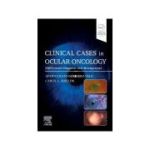Prostate Cancer Biochemistry, Molecular Biology and Genetics

Preț: 1155,00 lei
Disponibilitate: în stoc la furnizor
Autor: Tindall, Donald J. (Ed.)
ISBN: 978-1-4614-6827-1
Editura: Springer Nature
Anul publicarii: 2013
Pagini: 552
Categoria: ONCOLOGY
DESCRIERE
Gives the reader a comprehensive conceptual framework of the cellular mechanism that are critical for the initiation and progression of prostate cancer
Geared toward basic scientists, instead of largely clinically oriented
Includes an overview by experts in the field of cell-cell interactions, including stem cells, reactive Stromal cells, and membrane lipid rafts that are instrumental in the initiation and progression of prostate cancer
Prostate cancer is the most frequently diagnosed non-cutaneous malignancy in men, and the second leading cause of male cancer-related mortality in the United States. The last decade has seen unprecedented progress in the detection, prognosis, treatment and prevention of prostate cancer. These advances have been driven largely by an increased understanding of the underlying biochemistry, molecular biology and genetics of the disease. New cell and animal models have been developed that recapitulate the natural progression of prostate cancer. New technologies have allowed scientists to view in detail the genomic, proteomic, metabolomics and other –omic universe of cancer cells and tissues. This has resulted in a greater understanding of the pathophysiology of the disease.
Geared toward basic scientists, instead of largely clinically oriented
Includes an overview by experts in the field of cell-cell interactions, including stem cells, reactive Stromal cells, and membrane lipid rafts that are instrumental in the initiation and progression of prostate cancer
Prostate cancer is the most frequently diagnosed non-cutaneous malignancy in men, and the second leading cause of male cancer-related mortality in the United States. The last decade has seen unprecedented progress in the detection, prognosis, treatment and prevention of prostate cancer. These advances have been driven largely by an increased understanding of the underlying biochemistry, molecular biology and genetics of the disease. New cell and animal models have been developed that recapitulate the natural progression of prostate cancer. New technologies have allowed scientists to view in detail the genomic, proteomic, metabolomics and other –omic universe of cancer cells and tissues. This has resulted in a greater understanding of the pathophysiology of the disease.
Categorii de carte
-Comandă specială
-Edituri
-Promo
-Publicaţii Callisto
-Cărţi noi
-- 708,75 leiPRP: 787,50 lei
- 481,95 leiPRP: 535,50 lei
- 1155,00 leiPRP: 1260,00 lei
Promoţii
-- 151,20 leiPRP: 378,00 lei
- 82,95 leiPRP: 829,50 lei
- 189,00 leiPRP: 945,00 lei












REVIEW-URI